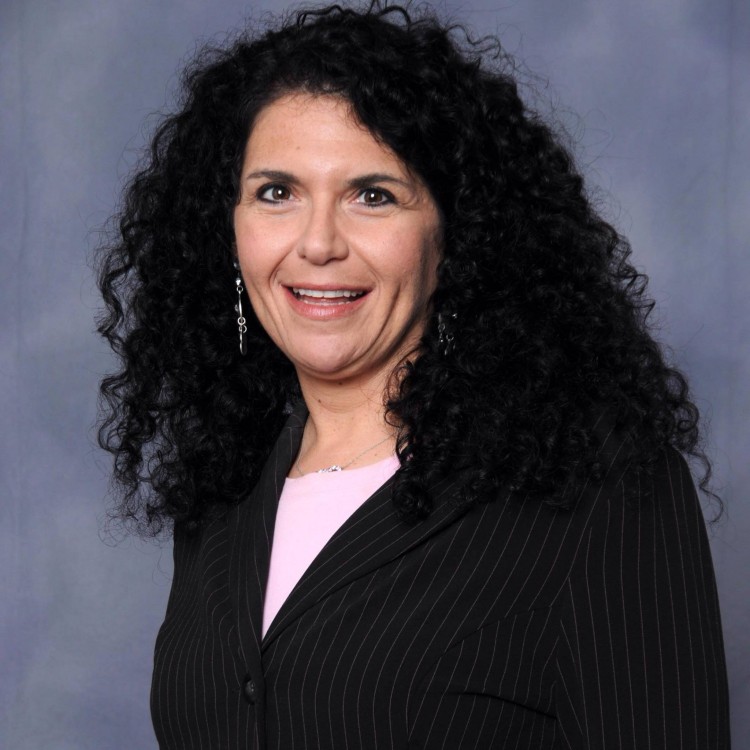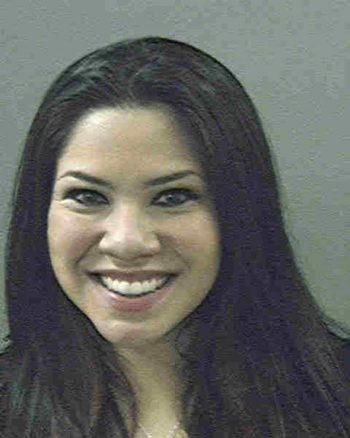Dr. Sue Sisley: Cannabis Medical Research is Being Kept in the Dark as Thousands Die Each Year

For many decades, one of the strongest arguments for the legalization of cannabis has been the potential medicinal benefits derived from the plant.
What we do know is that within the human body exists the Endocannabinoid System (ECS), a group of receptors throughout the brain and central nervous system that respond to compounds from the cannabis plant. The issue, however, is that there are over 400 natural compounds and at least 138 identified cannabinoids, all having various effects on the body.
To date, scientific research in the U.S. has been focused on isolating the various cannabinoids for treatment. Meanwhile, the medical and scientific community’s understanding of the whole cannabis plant has largely been reliant on anecdotal evidence and observational studies due to various regulatory and political barriers.
No one knows this more than Dr. Sue Sisley, one of the leading medical scientists and advocates for wider education on the effects of whole-plant cannabis. Dr. Sisley is a leading voice in the medicinal cannabis community, and her work with military veterans dealing with post-traumatic stress disorder (PTSD) has been recognized as groundbreaking, as evidenced by her being named as Researcher of the Year by Americans for Safe Access at the National Medical Cannabis Unity Conference in Washington, D.C. earlier this year.
But her work at times has also put her at the center of the legalization debate. For instance, after nearly a decade working in various capacities at the University of Arizona, the school terminated the relationship and her research. As part of our Future of Cannabis project, Equities.com had the opportunity to speak with Dr. Sisley in an extended interview to discuss the obstacles she’s faced, what she’s doing now to further her research with the support of Multidisciplinary Association for Psychedelic Studies (MAPS), and her thoughts on the advocacy of cannabis legalization.
To be clear, Dr. Sisley has said she is not completely convinced on all the benefits of medicinal cannabis and she actually does not prescribe it to her patients, but it is very clear that more understanding and research is absolutely needed and warranted.
EQ: In part one of our interview, we discussed what we know and don’t know about the medical benefits of cannabis, as well as some of the challenges that are on the way. Can you tell us more about your work in trying to further the research here?
Dr. Sisley: I was fortunate enough to team up with Multidisciplinary Association for Psychedelic Studies (MAPS), which is a non-profit organization based in Santa Cruz that has been working on eliminating barriers to marijuana research for two decades in order to study the risks and benefits of marijuana in clinical trials. We were able to team up over five years ago, battling together, to urge the government to do the right thing.
We partnered to advocate for a randomized controlled trial looking at 76 military veterans with PTSD. The goal is to put whole-plant marijuana through the entire FDA drug development process. That’s the only way to ever persuade physicians that marijuana is medicine. Our study is a phase 2 drug development trial regulated by the FDA, so if the data from phase 2 looks compelling, then the FDA may allow us to go to phase 3 expanded clinical trials. Sadly, however, because this research has been stonewalled by the layers of government red tape, we have not been able to implement this trial and I just continue to see patients full-time, wondering when we will ever get underway.
In addition to that, I’m working on some cannabis cultivation projects with various universities. The dream would be to see universities start to cultivate cannabis to spec for federally regulated drug development research.
You would assume that with this epidemic of veteran suicide that we have in the US, the government would see a study like this and expedite it, because this is a true public health crisis. It’s been a fascinating and disturbing odyssey for us. I would even say it’s been really depressing to see the way the government refuses to acknowledge this mountain of anecdotal evidence from veterans, and other PTSD sufferers, and they are not willing to acknowledge the collected data from other countries unless we can submit the primary research data under MAPS’ IND for marijuana.
EQ: That speaks to the need for a lot of the other work that you do as an advocate for better cannabis research. Can you tell us about some of the work that you do there?
Dr. Sisley: In addition to seeing 18-20 patients through telemedicine, which is basically very fancy encrypted video conferencing, I strive to build awareness about the existing anecdotal data on cannabis. I’ve been traveling all over the world, talking with fellow physicians, patients, family, elected officials and their staff to ensure they are armed with objective marijuana data.
I’m also involved with The Doctors for Cannabis Regulation, which is the collective voice of physicians who’ve gone on record about the need to stop the harms of criminalizing marijuana. We just launched that group in Washington, DC recently for the Drug Policy Alliance Conference.
This is the first time that we have an international voice of physicians urging compassionate legalization and also backing that up with legitimate data. The Board for the Doctors for Cannabis Regulation is extraordinary. I would just say that these doctors are some of the very best minds in the country and some of the top leaders in marijuana research. They are all on the Board of Directors, providing stewardship for this crucial nonprofit.
I think you’re going to see this group make some big moves over the next year to help educate our colleagues, first of all, as well as the rest of the community about why marijuana needs to be taxed and regulated. We don’t need to continue wasting taxpayer dollars on a failed marijuana prohibition policy anymore.
EQ: Medicinal cannabis is a hot-button issue. You know this better than anyone as a pioneer in this space, having fought the kinds of battles that you have fought. What are some of the most significant hurdles that you and your colleagues have had to deal with just to further your research?
Dr. Sisley: We don’t have a lot of randomized controlled trials in this area, and that’s why our study is crucial, because it’s one of the first randomized controlled trials in the country looking at whole plant marijuana for PTSD. We are getting more observational studies, but observational studies are subject to a lot of human bias. In the medical community, we don’t really put a lot of credence on any studies unless they’re randomized controlled trials. Our study hopes to satisfy the medical community’s demands for scientific rigor and eliminate human bias.
At the same time, I think that’s why it’s been thwarted so often along the way. The opponents of marijuana don’t want this type of research to ever see the light of day. This is exactly the kind of objective data that they fear the most, because this is the type of rigorous data that could get published in peer-reviewed medical journals later. And it could influence the thinking of the medical community, which is a big problem for opponents of marijuana. Those who feel threatened by cannabis gaining traction with conservative communities certainly want the physicians kept in the dark.
If you look at all the mainstream medical schools around the country, they typically don’t even mention the endocannabinoid system, even though this is a system that was uncovered in the ‘80s. We’ve known about the existence of ECS for well over three decades. And we know that every human body has an endocannabinoid system. That, I think, is really an abomination, and speaks to this pervasive stigma that we have around the word cannabis, and how politically radioactive this word is.
When you start to see medical schools finally embrace this idea about sharing information on the endocannabinoid system, I think you’re going to see a lot of things change in this country. But it has to start with our core curriculum. That’s the first thing that needs to be fixed in this country. That information, which is highly legitimate scientific material, is definitely as compelling as anything else I learned in physiology. It needs to be implemented immediately into this curriculum so that we don’t nurture another generation of physicians and other health professionals who are clueless about ECS, and uninformed about the therapeutic potential of cannabinoids.
EQ: You’ve mentioned the government as being one of the biggest oppositions to cannabis research. They’re obviously not the only group trying to protect the status quo in this regard. Who else is actively impeding the advancement of cannabis research?
Dr. Sisley: That’s a good question. The three major groups that I think of when I consider who is deeply opposed to legalizing cannabis is Big Pharma, law-enforcement and private prisons. Those industries are heavily dependent on keeping marijuana illegal.
Big Pharma recognizes that they are already losing a tremendous amount of market share just by the veterans community. Veterans are voting with their feet and walking away from all of these prescription meds. They’re losing millions of dollars each year that were previously guaranteed to them. The same groups that oppose marijuana legalization also are determined to hinder all marijuana efficacy research. Any studies that dare to look at the effectiveness of whole plant marijuana are the studies that they want to compete with.
They’re happy to see results from all the clinical trials looking at safety and the harmful side-effects of marijuana, and the addiction potential of marijuana. All of those studies are happily moved through the process and get all of the study drug they want. But it’s only studies like ours, which looks at both safety and efficacy within the same trial, that are most often thwarted. You just have to follow the money trail, and you see how much money is involved in keeping marijuana illegal.
The truth is that any data that might legitimize marijuana as medicine, Big Pharma views as a threat to their business model. So, anything that might warm the public to the notion that marijuana has therapeutic potential is a big problem for them.
EQ: The legalization of marijuana certainly would be a major disruptor to many industries, both positively and negatively. We’ve seen law enforcement voicing major opposition as legalization has expanded.
Dr. Sisley: This is an interesting journey that we’ve been on. We’ve met a lot of the opponents of research along the way. I’ve met lobbyists from the private prison system who thought I was so naïve when I would ask them why they’re opposing our research. In Arizona, for instance, our private prison system dominates the landscape with a vast majority of our department of corrections now managed by private prisons.
In Arizona, we have about 80,000 patients who now own a medical marijuana card, and the problem is that private prisons are dismayed that suddenly there’s 80,000 people in the state that they can no longer throw in their cages. That’s a huge issue for them, because they’re losing money left and right. And that’s why they’re working so hard to repeal this MMJ law. We’ve had the medical marijuana law now in Arizona for five years. So year after year, they’re seeing their budgets diminishing because those were always the low-hanging fruit.
That’s why the private prisons, and law enforcement, and Big Pharma are all working to suppress this research. Any data that might legitimize marijuana as medicine must be thwarted. What they’ll do is, they’ll tell the elected officials, ‘Well, you can’t study whole-plant marijuana, because that would be negligent. You can’t allow the green leafy substance to be medicine. You only want to study cannabinoids, because that’s where the real potential is to make it more pharmaceutical grade.” That’s why you see companies like GW Pharmaceuticals prospering, now with over $2.5 billion market cap. They are not offering whole plant marijuana as a prescription, only a patented delivery system for plant extract that contains one or two cannabinoids.
EQ: Why hasn’t Big Pharma embraced cannabis research as a new market to add to their pipeline instead of fighting so aggressively against it?
Dr. Sisley: My understanding is that they can’t patent whole-plant marijuana, primarily because of all the anecdotal data that is in the public domain. A lot of people are trying to patent various strains, but that hasn’t been very successful either due to questionable genetics of individual strains available. I think they realized that the only hope for them to make money is to patent a specific cannabinoid, develop it chemically, synthetically and then put it into pill or liquid form. That’s how they can profit eventually.
That’s why they have a deeply vested interest in keeping whole plant marijuana illegal, so that it can be kept at bay, and the only legal supply is their specific cannabinoid in pill form or whatever they want to do. They’re going to try to find a way to keep marijuana under prohibition for as long as they can to enable them to continue their private research. They’ve been researching this plant for decades at the receptor level. Don’t fool yourself into thinking that they’re just now jumping on the bandwagon. They’ve been quietly pouring millions of dollars into this ever since the endocannabinoid system was first discovered.
They’re hoping that they can discover a single cannabinoid, or a combination of a couple of cannabinoids (and a couple of terpenes maybe) that can come close to replicating the efficacy of the natural plant, as is typical in the pharmaceutical industry. But when you extract a single cannabinoid from the natural plant, it’s like taking the intelligence out of the plant and leaving the wisdom behind, as Deepak Chopra once said. The wisdom is in the Entourage Effect of all of these compounds working together in concert with each other synergistically. When you isolate a single cannabinoid, you get a ton of side effects, because you lose the natural balance and buffering effect of these 138 phytocannabinoids.
We’re arguing that there is no reason that the natural raw plant could not be a great pharmaceutical medicine that is made available off-patent. We may or may not prove that in our study. I know people look at it and say, ‘There’s no way you put whole plant marijuana through the FDA process.’ We can, and we’re proving that. And we’re going to persevere until we’ve overcome all of these hurdles and hopefully gotten through all of phase 3. That could be five years away, but someday we may complete both phase 2 and phase 3, and may have whole plant marijuana on the market.
EQ: With the early success of Colorado and the other states, it does seem that the momentum for wider legalization could help to turn the tide of the demand for research and the accessibility of resources to support it. What is your take on the progress you’ve seen so far?
Dr. Sisley: It’s helped to some degree, but there is still significant impediments to conducting marijuana efficacy research. For instance, MAPS has been working for two decades to end the redundant Public Health Service review. This review by PHS bureaucrats, conducted after we have already obtained FDA approval for the protocol was a ridiculous exercise in government waste. It took them five months to approve a protocol that had already been approved by FDA and the University’s Independent Review Board, and they did not require any protocol changes. During these five months of stonewalling, 3,200 veterans killed themselves in this country. We are grateful that the Obama administration finally announced they have repealed this PHS review. But as long as the DEA-mandated monopoly continues to exist, marijuana research will never flourish in the US.
In terms of the legalization movement, the problem is that I hear a lot of people say, “We’re never going to be able to get broad legalization of medical marijuana nor retail marijuana until this older generation dies off.” I think that’s a really negligent statement because some of my most articulate patients are from the senior community.
So my main message, especially to the activist community, is to not give up on the senior population because those folks can eventually be your best advocates. I think they have the potential to persuade the naysayers more than anyone else because while most of them may be very conservative, these are folks that are just trying to live out the rest of their lives and be as high functioning as possible. And cannabis seems to have helped them do that. That’s what they claim. So we need to listen to them and we need to get them speaking out more publicly and describing these transformational experiences.
You can read more from our special program The Future of Cannabis here. To find out why Equities.com and Viridian Capital Advisors launched this program, be sure to read What is The Future of Cannabis? This program was made possible by the support of our sponsors. Click here for a full list of our sponsors.
Article by: Henry Truc
Article Source: Equities.com





No Comment